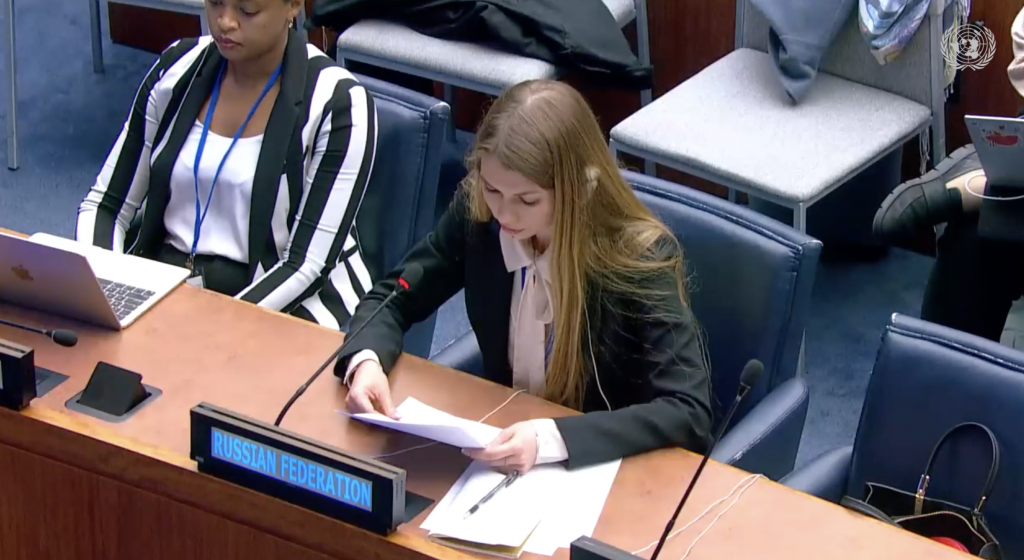Statement by Representative of the Russian Federation Ms.Irina Tyazhlova at the Seventh session of the UN Open-Ended Working Group on security of and in the use of ICTs 2021-2025 under agenda item “Existing and potential threats”
Mr. Chair,
The current state of international relations in the sphere of information and communications technologies (ICTs) is characterized by increased risks of interstate conflicts caused by the use of such technologies for purposes contrary to the UN Charter. This is due to the fact that a number of countries consider information space as an arena of geopolitical confrontation rather than an environment for economic and technological development. They use ICTs in military-political and other spheres to undermine/infringe upon sovereignty, violate the territorial integrity of States and interfere in their internal affairs. The situation is aggravated by the possibility of disproportionate threat response measures.
To accomplish offensive tasks, specific means are used to organize large-scale intelligence operations in the information space of other countries and to disseminate information through ICTs that is harmful to the socio-political, socio-economic, spiritual, moral and cultural environment of States. Of particular concern is the rapid increase in the number of computer attacks on critical facilities. Some of the main methods of such subversive activities are: social engineering tools; mass mailings of e-mails with malicious attachments; distributed denial-of-service (DDoS) attacks; bribing users to obtain information about the specifics of information systems and access to databases containing private data; embedding cryptoviruses through e-mail attachments and exploiting software vulnerabilities; scanning official websites of State authorities and organizations to find vulnerabilities and gain access to the source codes of websites.
Given the anonymity of information space, “false flag” computer attacks conducted to accuse other States also pose a serious danger. As it is difficult to accurately identify the sources of such attacks, and a universal methodology for determining perpetrators is lacking, any political decisions in the use of ICTs may carry additional risks to international peace and security.
Earlier the Russian Federation also drew the attention of the OEWG participating States to other threats contained in the concept of the UN convention on ensuring international information security, submitted as an official document of the UNGA 77th session. To name some of them: monopolization of the ICT market by certain States and/or with their assistance by private companies; unjustified accusations by some States against other States of unlawful activities using ICTs; placement of tools for computer attacks in the information space of States in free access; use of ICTs to the detriment of basic human rights and freedoms exercised in information space, primarily, the right of a person to respect for his/her personal (private) life.
In order to counter the aforementioned threats, it is important to direct the efforts of the world community to the creation of an information security system under the UN auspices in accordance with the provisions of UNGA resolutions 77/36 and 78/237. In our view, it should be based on the principles of prevention and peaceful settlement of disputes, sovereign equality of States, indivisible security. To ensure efficiency of the international information security system it is necessary to develop a universal legal instrument to regulate the behavior of States in the digital environment.
Thank you for your attention.
